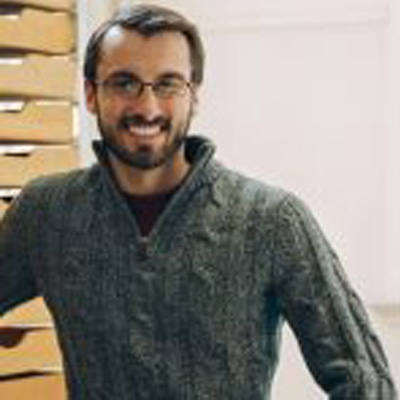The UConn Department of Anthropology is home to a diverse community of graduate students studying a variety of subfields. Continue reading to learn more about their favorite parts of their research, why they became interested in anthropology, and fun facts about them!
Q&A
What sparked your interest in Anthropology/Archaeology?
I’ve wanted to be an archaeologist since I was 12 years old. I suspect my interest sprang from my love of both history and natural history. Growing up in south-central Pennsylvania, my dad would take me on weekend trips while my mom worked. We’d go explore the mountains outside of town, set up his tree stands in preparation for hunting season, search for fossils, drive over to Gettysburg battlefield, and we even went to a Native American pow-wow or two. I think that once I learned what archaeology was, the tangible nature of digging for artifacts appealed to me more than just reading old documents. So I think it probably makes sense that I became interested in archaeology and human ecology!
What are your research interests?
Human ecology, broadly – specifically behavioral, population, community, and historical ecology.
Where will you/are you conducting your fieldwork?
My dissertation doesn’t require any fieldwork, but I’m involved in a side fieldwork project that takes me to the young country of Kosova in the Balkan peninsula of Europe.
What do you find most interesting about your field work location?
In Kosova, the past and present blend together in really interesting ways. We’re conducting an archaeological survey, so we spend most of our time walking around the countryside and inevitably end up talking to people we meet. In a region with very strong ethnic divides between Serbs, Albanians, Bosniaks, and others, cultural heritage really matters to these people. They have very strong historically-situated identities, which in some cases are rooted as far back as the Iron Age. It’s really interesting to encounter a situation where archaeology has such strong implications for people in the present.
What is your most memorable experience thus far in the field?
My most memorable experiences from Kosova are unfortunately hearing the stories of the war that happened only twenty years ago. People often want to share the things that happened to them and their families so that we understand what happened there. But there are many positive experiences too, like finding a 5th century monastery up on a beautiful mountainside that some local folks had told us about.
What do you do in your “downtime?” Tell us something interesting about yourself!
I spend a lot of my free time volunteering with political organizations.
